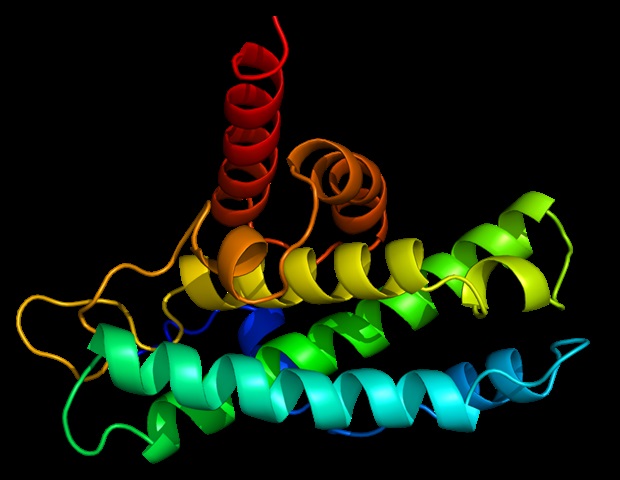Health
New Research Boosts Protein to Combat Neurodegeneration

A groundbreaking study has identified a novel approach to combat neurodegenerative diseases by enhancing the levels of the protein PI31. Researchers found that increasing PI31 can help prevent neuronal degeneration, restore synaptic function, and significantly extend lifespan in models of genetic disorders resembling Parkinson’s. The findings, published in the journal PNAS, could pave the way for new treatments for conditions such as Alzheimer’s and age-related cognitive decline.
Neurodegenerative diseases are characterized by a breakdown in communication between brain cells. Before significant neuronal loss occurs, the system responsible for clearing protein waste at synapses begins to fail. This leads to impaired connections and disrupted signaling, affecting essential functions like reasoning, language, and memory. The research led by Hermann Steller, head of the Strang Laboratory of Apoptosis and Cancer Biology at Rockefeller University, reveals that boosting PI31 can address this cleanup failure.
“Now that we’ve shown how to eliminate unwanted proteins at the synapse, we hope this will lead to a revolution in treating common age-related disorders,” said Steller.
For decades, the focus in neurodegenerative research has been on protein aggregates, such as the beta-amyloid plaques and tau tangles associated with Alzheimer’s disease. The prevailing “amyloid hypothesis” suggested that these protein clumps were the primary culprits behind neuronal death. However, as therapies targeting these plaques have often fallen short in clinical settings, Steller proposed a different perspective. He argues that protein aggregates may actually be symptoms of the disease rather than its root cause.
Steller’s previous research indicated that neurodegeneration might not begin with protein clumps, but rather with a disruption in the transport of proteasomes—cellular machines that degrade damaged proteins—to synapses. If proteasomes fail to reach their destination, waste accumulates and communication falters. In a previous study from 2019, Steller identified PI31 as an essential protein that helps transport proteasomes to synapses. Without sufficient PI31, the transport system stalls, leading to detrimental effects.
Flies and mice lacking PI31 exhibited signs of neurodegeneration, and mutations affecting PI31 function have been linked to several neurodegenerative diseases. “Variants of the gene coding for PI31 are found in Alzheimer’s patients. They’re found in ALS patients. Patients with these same variations are sometimes diagnosed with Parkinson’s,” Steller stated.
To further investigate the potential of PI31, the research team focused on a rare genetic disorder caused by mutations in the gene FBXO7, which is associated with early-onset Parkinson’s-like symptoms in humans. The connection between FBXO7 and PI31 is significant; loss of FBXO7 results in decreased PI31 levels.
The researchers initially worked with fruit fly models, where they observed that inactivating the fly equivalent of FBXO7 resulted in severe motor defects and disrupted proteasome transport. Remarkably, when they introduced extra copies of PI31, these symptoms were largely reversed, allowing proteasomes to function effectively again.
Building on this success, the team then studied FBXO7-deficient mice. They discovered that even modest increases in PI31 levels could significantly suppress neuronal degeneration, maintain motor function, and improve overall health. In fact, certain mice experienced an extension of their lifespan by nearly fourfold. Additionally, the overexpression of PI31 proved effective in clearing abnormal tau proteins, a hallmark of Alzheimer’s disease.
Steller remarked, “The degree to which we can rescue the various defects in mice is remarkable.” The next phase of research aims to determine whether enhancing PI31 can preserve cognitive function in aging mice, with aspirations to transition toward preclinical development of therapies for humans.
In a recent preprint, Steller’s laboratory collaborated on a study indicating that humans with rare mutations in the PI31 gene experience a spectrum of neurodegenerative conditions. This suggests that a therapy targeting PI31 could be beneficial for those suffering from specific disorders caused by FBXO7 or PI31 deficiencies.
Ultimately, Steller believes that insights gained from treating these rare conditions could inform broader strategies to slow age-related cognitive decline and address more prevalent diseases like Alzheimer’s. “We’re extremely excited that this is relevant beyond our fly and mouse models of FBXO7,” he noted. “The science implies that our findings may potentially, down the road, allow us to slow down cognitive decline as we age.”
-

 Entertainment2 months ago
Entertainment2 months agoIconic 90s TV Show House Hits Market for £1.1 Million
-

 Lifestyle4 months ago
Lifestyle4 months agoMilk Bank Urges Mothers to Donate for Premature Babies’ Health
-

 Sports3 months ago
Sports3 months agoAlessia Russo Signs Long-Term Deal with Arsenal Ahead of WSL Season
-

 Lifestyle4 months ago
Lifestyle4 months agoShoppers Flock to Discounted Neck Pillow on Amazon for Travel Comfort
-

 Politics4 months ago
Politics4 months agoMuseums Body Critiques EHRC Proposals on Gender Facilities
-

 Business4 months ago
Business4 months agoTrump Visits Europe: Business, Politics, or Leisure?
-

 Lifestyle4 months ago
Lifestyle4 months agoJapanese Teen Sorato Shimizu Breaks U18 100m Record in 10 Seconds
-

 Politics4 months ago
Politics4 months agoCouple Shares Inspiring Love Story Defying Height Stereotypes
-

 World4 months ago
World4 months agoAnglian Water Raises Concerns Over Proposed AI Data Centre
-

 Sports4 months ago
Sports4 months agoBournemouth Dominates Everton with 3-0 Victory in Premier League Summer Series
-

 World4 months ago
World4 months agoWreckage of Missing Russian Passenger Plane Discovered in Flames
-

 Lifestyle4 months ago
Lifestyle4 months agoShoppers Rave About Roman’s £42 Midi Dress, Calling It ‘Elegant’









